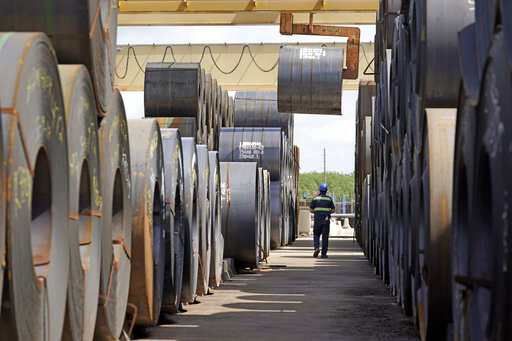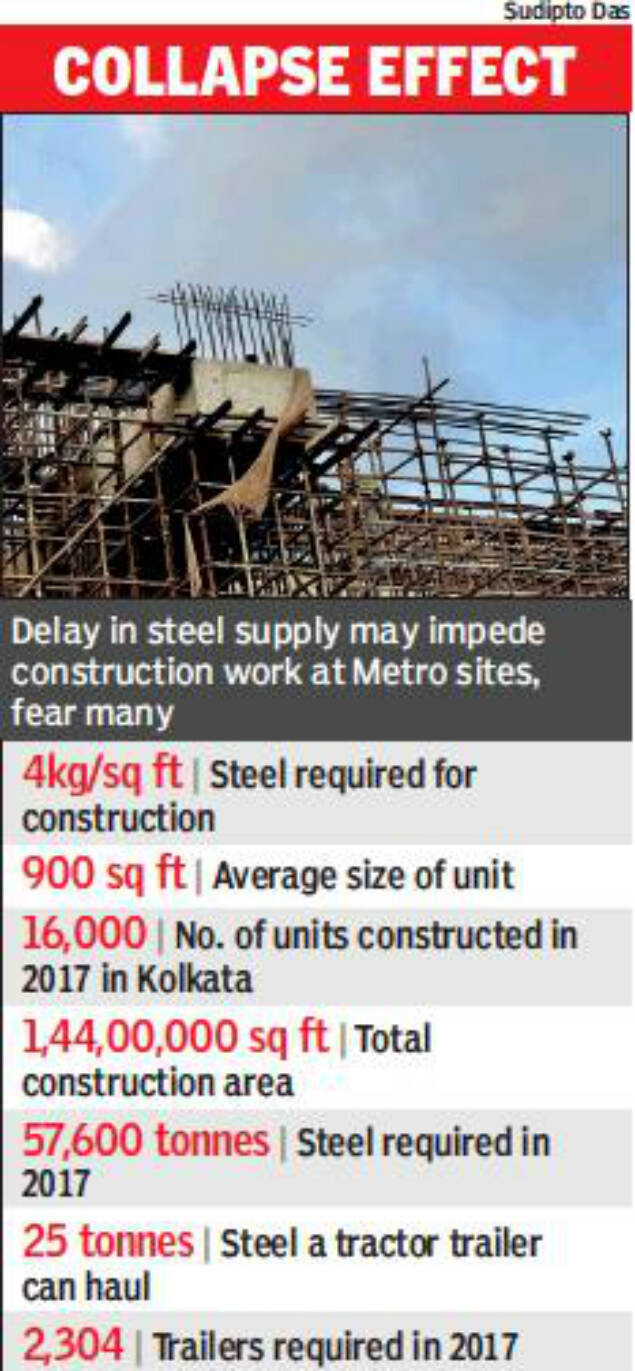
The state transport department had, in a notification post the Majerhat bridge collapse, banned the entry of trucks with 20 wheels or more into the city to protect other ageing bridges. While it has not hurt the industry yet, developers are wary of the impact it will have once the inventory of raw materials get depleted and fresh stocks have to be requisitioned.
Most of the developers TOI spoke to voiced concern over movement of steel bars that are transported in trailers that usually have 20 wheels or more. Needed right from the beginning when piling is done till the last roof is cast, steel is the most critical component of the construction industry.
“Steel cannot be substituted. Unlike other materials like sand, stonechips, cement and bricks, that can be transported in smaller trucks, the long steel bars and rods have to be moved in trailers,” said Nakul Himatsingka of Ideal Group that procures 500 tonne of steel every month that is transported in 20 trailer trucks.
Also, with police doing away with the relaxation on afternoon movement of trucks on select city roads, developers are aware of the need for greater material planning to ensure that there is no supply disruption. While night traffic will increase across Kolkata, developers forsee problems in procurement of materials in sites in the Behala-Joka belt.
 Merlin group chief Sushil Mohta, who is also the vice-president of the national chapter of Conferation of Real Estate Developers Association of India (Credai), is hopeful the police will relax the curbs at night to ensure the construction industry — both real estate and infrastructure projects — is not hit.
Merlin group chief Sushil Mohta, who is also the vice-president of the national chapter of Conferation of Real Estate Developers Association of India (Credai), is hopeful the police will relax the curbs at night to ensure the construction industry — both real estate and infrastructure projects — is not hit.“I am sure police will allow movement of trailers at night for shipment of steel required by the real estate industry and pre-fabricated concrete or steel viaducts for Metro projects. The transportation cost of other materials will also go up as they are moved in smaller trucks with lower capacity than larger ones,” he said.
Belani group chief Nandu Belani, who is the president of the Bengal chapter of Credai, is confident cops will allow movement of reinforced steel in tractor trailers. “I believe the curbs are temporary to allow the various agencies to check the health of bridges and take corrective measures. The government will review it after a while and allow relaxations,” he said.